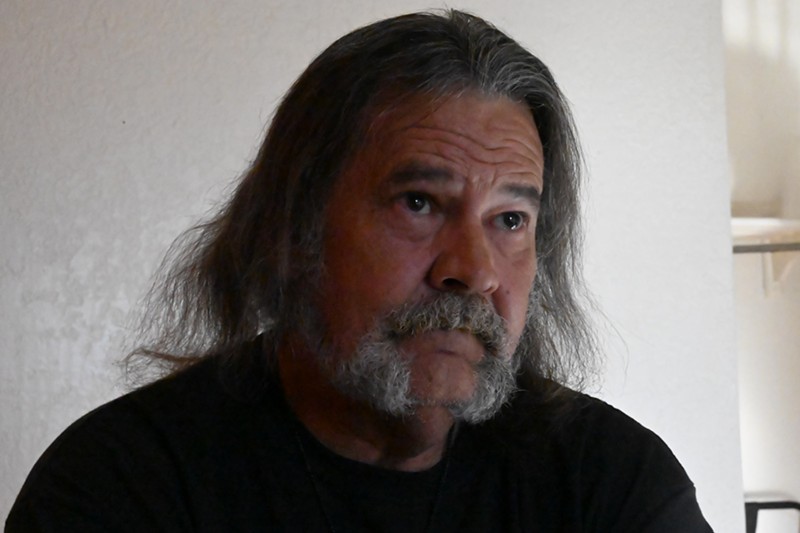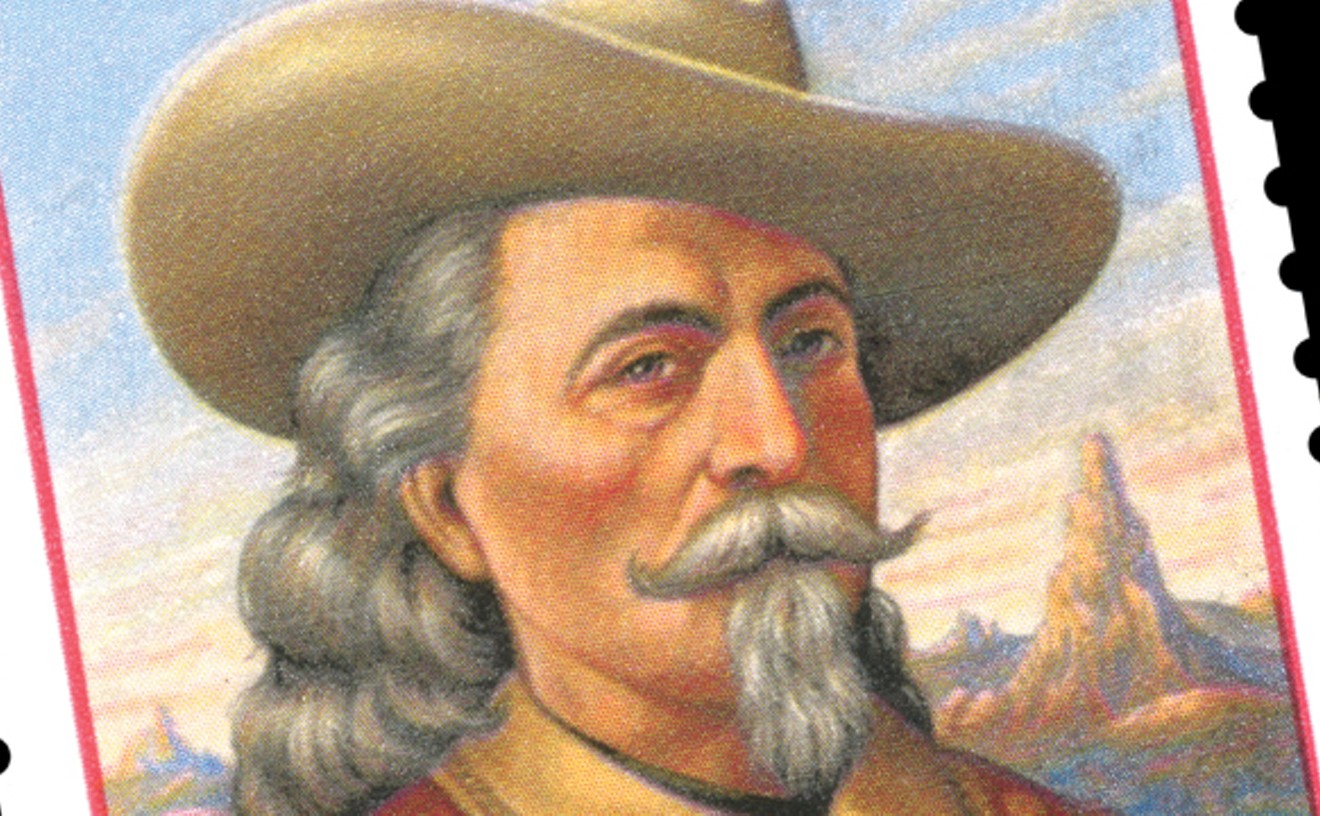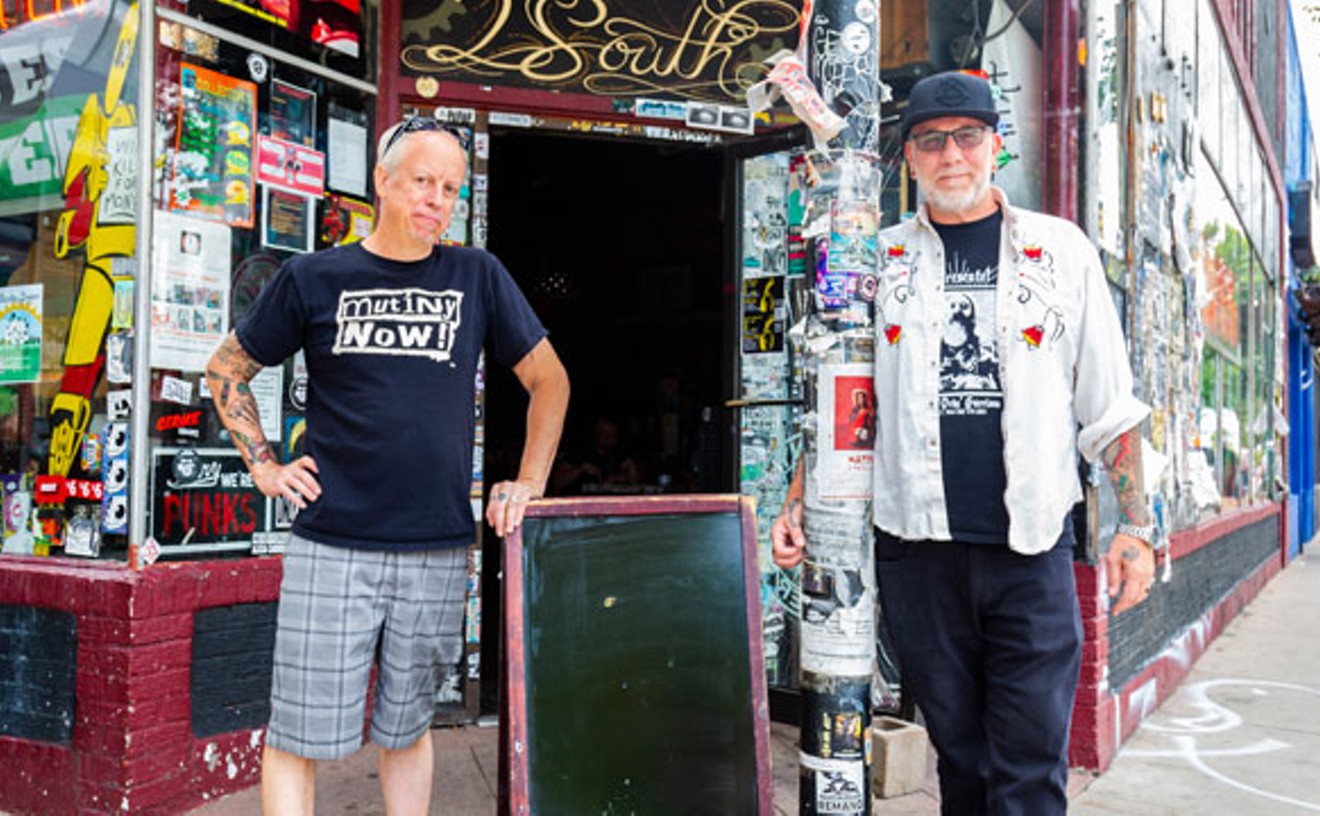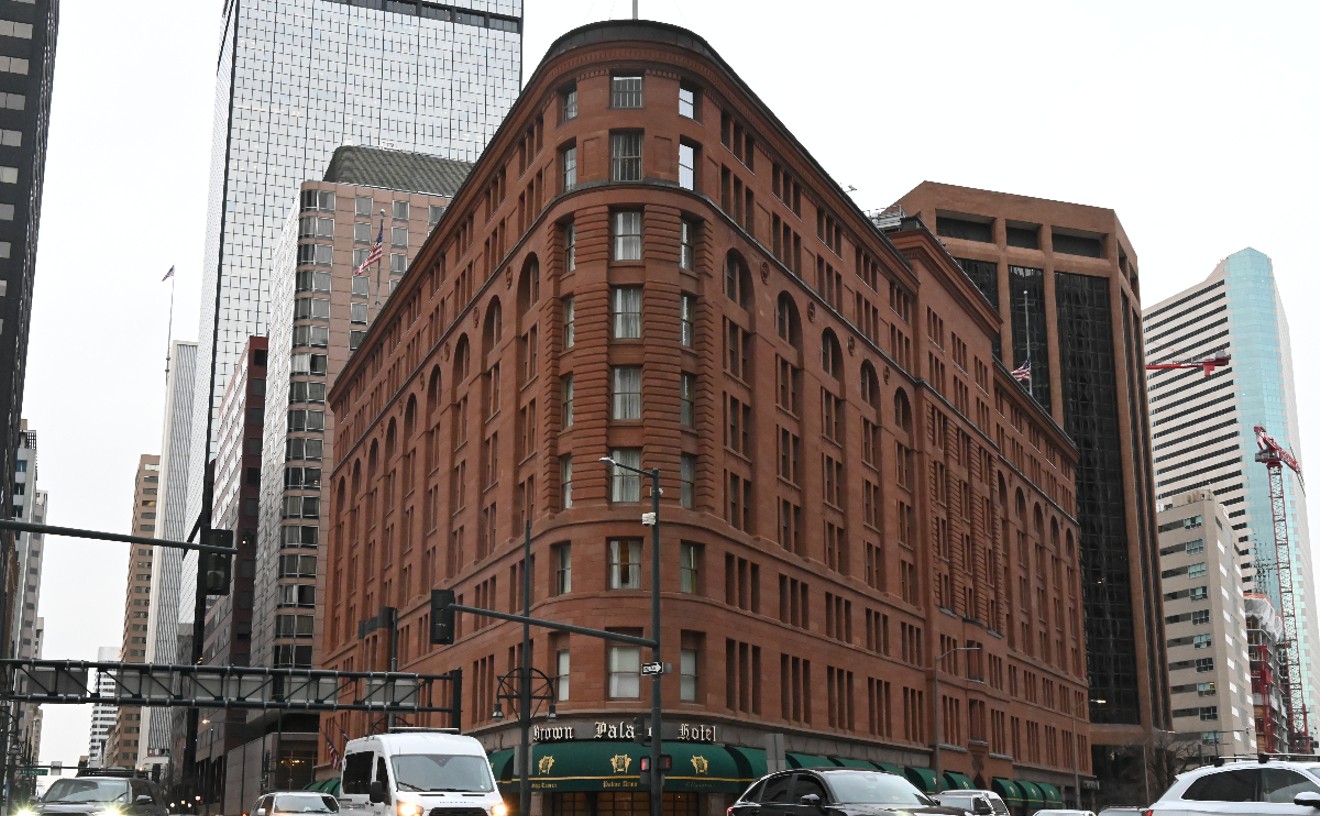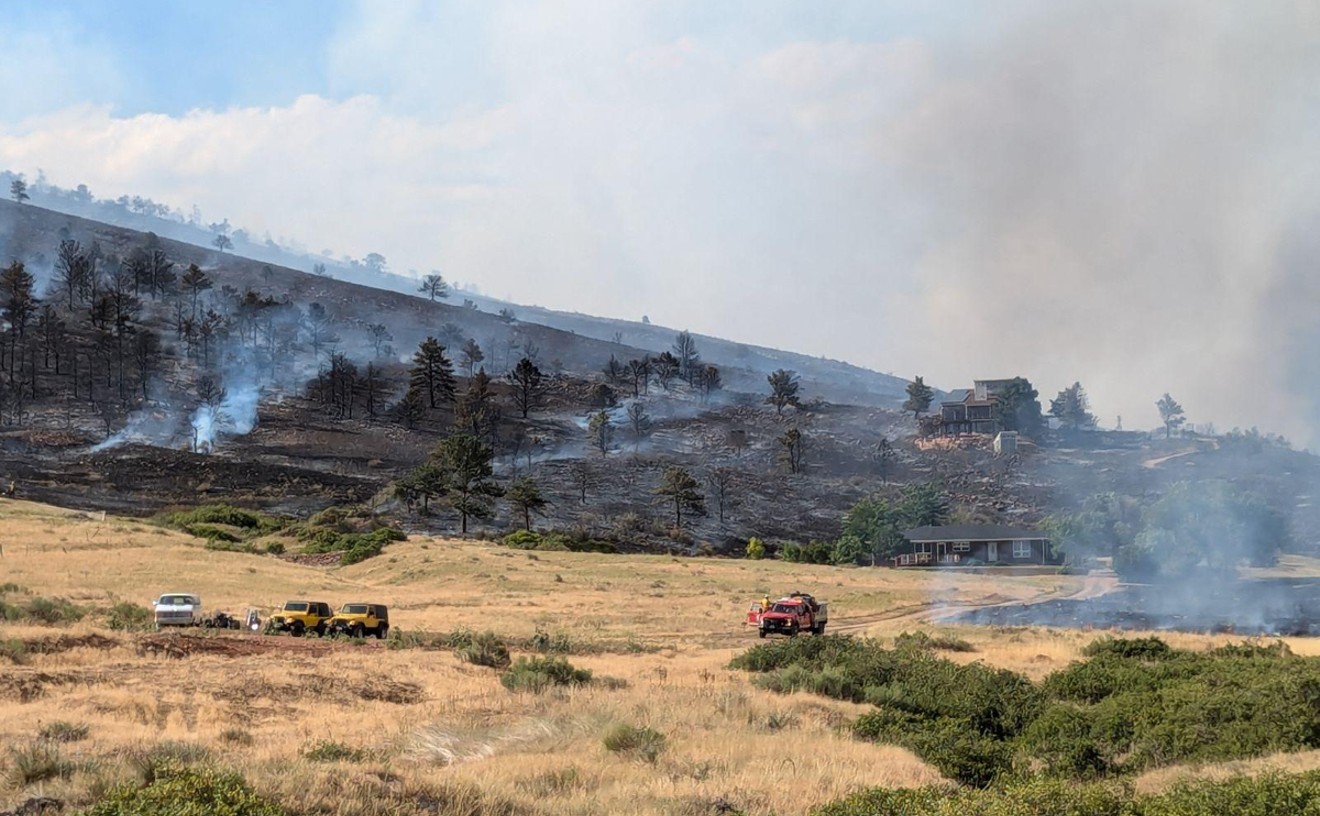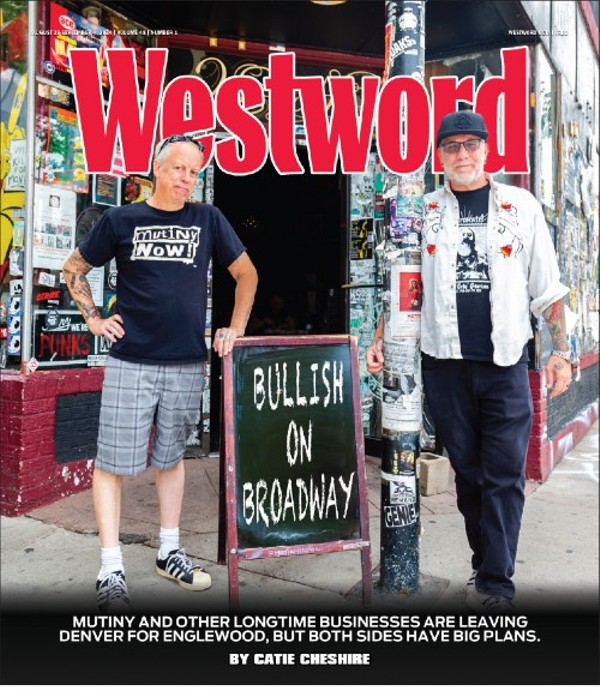"Unfortunately, his death is consistent with a suicide," Brian Feik, a Lakewood Police detective, says. "Messages in his phone indicate he took being fired from his job very hard and was in a bad mental space."
Henry worked in the Brown Palace as a handyman, fixing up everything from the air conditioning to loose toilet paper holders. Having spent most of his life in Denver, he considered the Brown Palace an "icon" and felt like the "man of the hour" when he got the job, he told Westword.
But Henry also felt hopeless after a series of misfortunes sent him back out onto the street and into homelessness.
Henry was first homeless after his roommate died from a drug overdose last October and he couldn't afford the rent going forward. After living in his car for a month, he went to Step Denver. With the organization's help, he landed a job with the Brown Palace on January 5, the day after his 58th birthday.
He said he had to leave Step Denver after missing an appointment, however, and returned to living in his car shortly after landing his Brown Palace gig. Henry lived in his car from January to April, through "the most brutal part of winter."
His car was stolen in April, though, which led him to try living in a storage space on the Brown Palace's tenth floor. Henry detailed to Westword how he would come down to shower in rooms that were under repair and couldn't be booked. Eventually, he decided to sleep in those out-of-order rooms instead of in the chair on the tenth floor.
A security guard saw him crossing the Brown Palace's skybridge to sleep in an out-of-order room, and told the hotel's manager. Henry was fired the next day, August 8, but said he didn't blame the security guard.
"I like him, he's a nice kid," Henry said of the guard. "He was afraid, and he caught me coming across that bridge. Him being afraid to lose his job, he had to report it."
Henry worked in the Brown Palace as a handyman, fixing up everything from the air conditioning to loose toilet paper holders. Having spent most of his life in Denver, he considered the Brown Palace an "icon" and felt like the "man of the hour" when he got the job, he told Westword.
But Henry also felt hopeless after a series of misfortunes sent him back out onto the street and into homelessness.
Henry was first homeless after his roommate died from a drug overdose last October and he couldn't afford the rent going forward. After living in his car for a month, he went to Step Denver. With the organization's help, he landed a job with the Brown Palace on January 5, the day after his 58th birthday.
He said he had to leave Step Denver after missing an appointment, however, and returned to living in his car shortly after landing his Brown Palace gig. Henry lived in his car from January to April, through "the most brutal part of winter."
His car was stolen in April, though, which led him to try living in a storage space on the Brown Palace's tenth floor. Henry detailed to Westword how he would come down to shower in rooms that were under repair and couldn't be booked. Eventually, he decided to sleep in those out-of-order rooms instead of in the chair on the tenth floor.
"I started thinking, 'Shit, why am I going down to one of them out-of-orders in the morning?'" Henry said. "Why don't I just sneak down to one of them at 11 o'clock at night and just sleep in there?"
A security guard saw him crossing the Brown Palace's skybridge to sleep in an out-of-order room, and told the hotel's manager. Henry was fired the next day, August 8, but said he didn't blame the security guard.
"I like him, he's a nice kid," Henry said of the guard. "He was afraid, and he caught me coming across that bridge. Him being afraid to lose his job, he had to report it."
With a little more money in his pocket from his eight months with the Brown Palace, Henry stayed in a Motel 6 in Lakewood. He spent the last of his money extending his stay two days at a time until he finally ran out of money and had to leave the hotel on August 21.
"I'm down to nothing now," he told Westword on August 16. "What else am I going to do? What else am I going to do? And at my age, I don't really see another life."
Henry is thought to have committed suicide the day after leaving the hotel, on August 22. A fan of longtime Denver establishments, he told Westword his story. Upon confirming his employment at the Brown Palace, an article was published on Monday, August 26, about his struggles with homelessness and his firing. It ran four days after he's believed to have died.
After reading his story, numerous people posted messages of sympathy on social media and reached out to Westword asking to help him.
"For those with a heart, a down on his luck employee needed help but was fired instead — let's have more empathy for others," Instagram user pinkvegn wrote. "He stole nothing, harmed no one, didn't ask for anything but a warm place to sleep."
Centennial business owner Noah Singer briefly started a petition for Henry to be rehired by the Brown Palace, but he took the petition down after finding out about Henry's death.
"After I read the story, it broke my heart thinking about someone doing everything they possibly could, wasn't homeless by choice, tried to work a job and was just dealt bad consequence after bad consequence. I think there's a lot of people like that," Singer says. "It makes it even more tragic. I don't think we can assign blame to the hotel, but I think that's where the mind goes: 'Would he still be alive if he had a job?'"
Henry said that he had a ten-year-old son who lived in Aurora, but he didn't know how to contact him after a falling-out with his son's mother. Feik says that Henry's family knows about his death.
Although Henry didn't have much hope in his last days, he expected his story of the Brown Palace to bring attention to how Denver establishments are changing. He also thought his death would draw attention.
"I've said for years that when I die, it's going to be on the news," he said. "In the paper or something."

